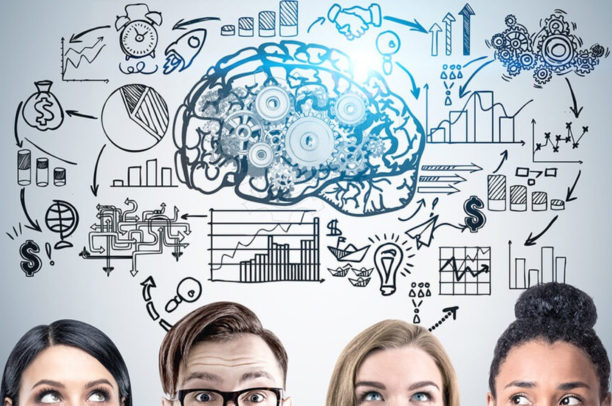Introduction
It’s more frequent than we realize to judge colleagues. Let’s examine the psychological and emotional underpinnings of our judgments of coworkers and how greater understanding might result in more empathy and positive working relationships.
There is judgment in the workplace, but is it always logical?
We frequently make fast decisions about coworkers based on their tone in meetings, their appearance, their speech patterns, or how frequently they are spotted chatting by the coffee maker. This happens in almost every workplace or team environment. Despite their apparent innocuousness, these views frequently result from deeper patterns of personal fears, societal training, and unconscious bias.
So why do we do it? Why do we make snap judgments about other people? More significantly, how can we go from making snap decisions to paying attention?
We must examine the psychology underlying emotional reactions, workplace stereotypes, and the necessity of self-awareness in order to provide an answer.
The Root: Unconscious Bias and Workplace Conditioning
Unconscious bias, a collection of ideas or mental shortcuts shaped by our upbringing, prior experiences, societal standards, and even media impact, is at the heart of the majority of judgments. When we meet someone new or are uncertain about how to perceive an action, these biases instantly come into play.
How it manifests itself at work:
Believing a coworker who wears casual clothing is unprofessional; dismissing someone’s opinions due to their age or accent; or supposing a silent employee is disengaged
All of them are perception traps, in which reality is subordinated to perception.
Louise Philip, a transformational coach and workplace healing facilitator, reminds us:
“Judgment is often our fear in disguise—trying to feel safe by staying separate. But healing happens when we lean into curiosity instead.”
The Influence of Emotional Intelligence on Dynamics at Work
Not only does judgment affect other people, but it also reflects how we feel about ourselves. We have a tendency to impose our own expectations on other people if we are extremely critical, fiercely competitive, or uncomfortable with vulnerability.
Developing emotional intelligence enables us to:
• Identify and control our own emotional responses.
• Recognize that our perceptions are shaped by our own experiences; react empathetically instead of assuming anything.
How to get started:
• Before calling someone “difficult” or “lazy,” pause and consider what might be going on underneath the surface.
• Consider: Is this response related to them, or is there anything I haven’t dealt with?
Often, judging serves to protect the ego rather than the team.
Decision-making turns into a defensive tactic in hectic, competitive settings. It rarely fosters cooperation or connection, but it might give us feelings of superiority, control, or justification.
Rather, it: erodes trust; encourages rumors; and divides teams.
We cease to listen when we pass judgment. Additionally, we miss out on the chance to comprehend, connect, and develop as a team when we stop listening.
What Modifies Judgment in the Workplace? Practice, Awareness, and Curiosity
Moving past judgment is addressing workplace challenges with clarity, inquiry, and compassion rather than ignoring them.
🔸 Begin by asking yourself: What is this judgment attempting to shield me from?
🔸 Put empathy before criticism: Everyone is battling invisible struggles.
🔸 Establish a connection: Pose inquiries. Be interested. Pay attention.
By doing this, we establish a psychologically secure environment where coworkers feel appreciated and seen beyond appearances.
Conclusion: From Evaluation to Knowledge
When individuals listen instead of labeling, connect instead of comparing, and respond instead of reacting, workplaces flourish. Gaining insight into the reasons behind our judgments of colleagues enables us to develop personally as well as professionally.
“Healing at work begins when we recognize that every judgment is a window—to our stories, our pain, and our potential to choose differently,” as Louise Philip so eloquently states.
Do You Want to Create an Empowered, Judgment-Free Workplace Culture?
In order to lessen unconscious prejudice, increase awareness, and foster genuine communication among teams, Mindspa provides specialized leadership and emotional intelligence group training that are based on Louise Philip’s teachings.
Contact us at mindspaindia@gmail.com or by call on +91 93254 06967. To learn more about initiatives that foster connected, mindful workplaces, visit mindspaindia.com.

